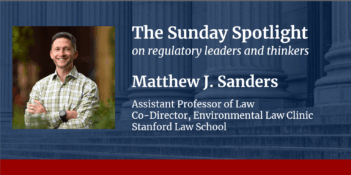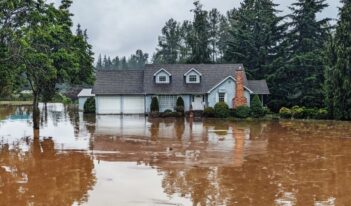
PPR seminar discusses cultural causes of controversy.
Perceptions about climate change may depend more on cultural dispositions than scientific knowledge. This analysis was the conclusion presented by Professor Dan M. Kahan of Yale Law School at a recent risk regulation seminar organized by the Penn Program on Regulation.
Drawing on national survey research, Kahan argues that insufficient knowledge of science and deficiencies in numerical reasoning does not lead people to underestimate the likelihood or consequences of climate change. On the contrary, the paper finds that as people’s science literacy and numeracy increases, their concern over climate change actually decreases slightly.
Kahan and his co-authors find instead a strong correlation between science literacy and cultural polarization. As people become more science literate, those initially skeptical of environmental risks grow less concerned, while those initially concerned with environmental risks grow more concerned. Kahan claims that science literacy does not shift people’s belief towards the current scientific consensus; it simply shifts their beliefs more strongly in line with their cultural predispositions.
Kahan explains that public opinion on climate change is influenced by two conflicting levels of rationality. Individually, people process scientific information and form beliefs that will fit their culture group to avoid “community estrangement.” Collectively, this leads to a suboptimal level of knowledge about risks, or what he calls a “tragedy of the risk perception commons.”
Kahan argues that addressing the cultural values associated with climate change should be factored into any effort at risk communication.



